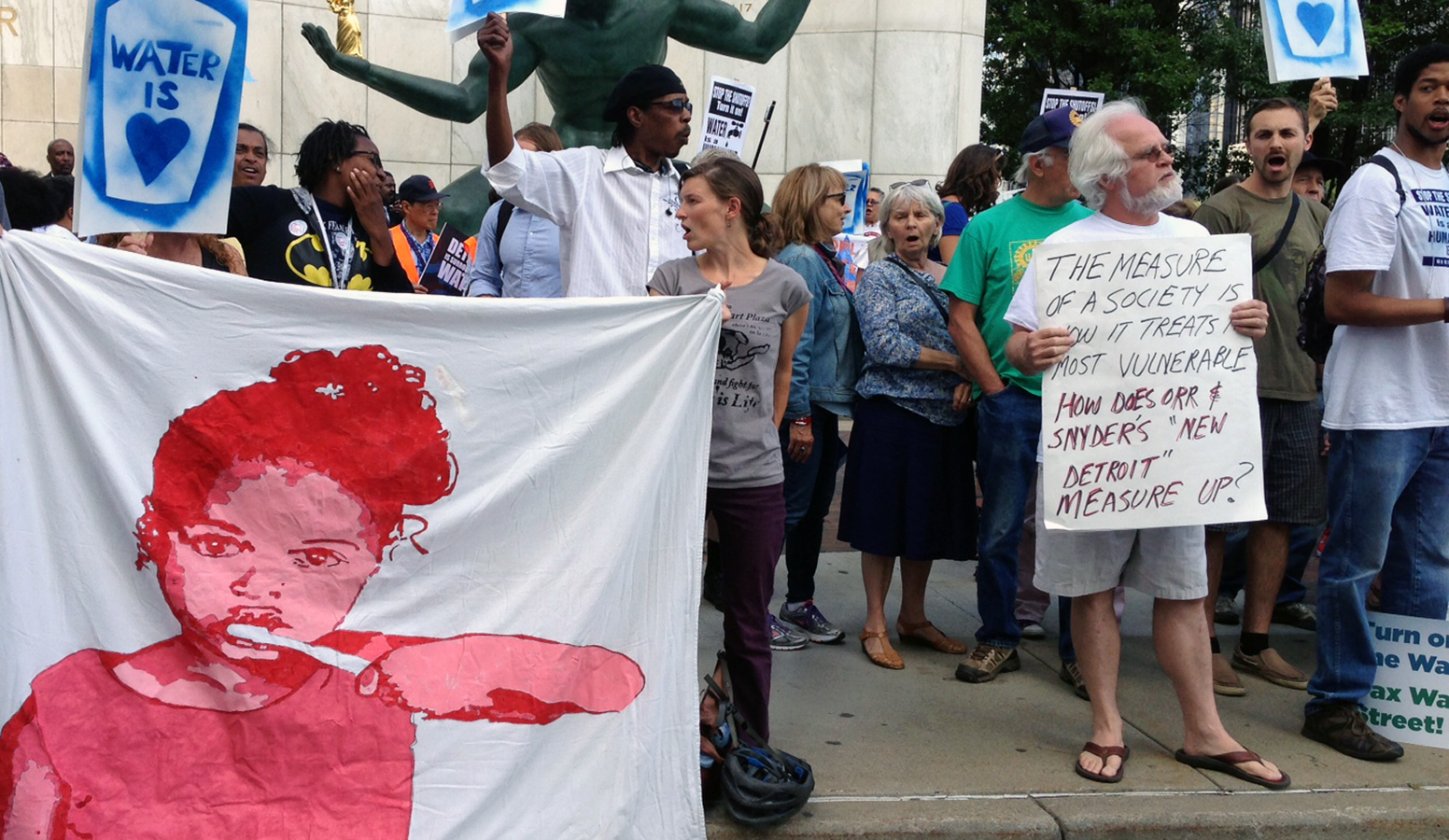Tuesday, as I drove around Detroit interviewing people about the city’s water crisis, my email kept filling with congratulatory messages.
“I’m excited to let you know about a big win that happened today in Detroit,” read one, from the organizers of Netroots Nation, the conference that helped call attention to the biggest and most celebrity-bedazzled protest the crisis has seen so far. “Control of the Detroit Water and Sewage Department (DWSD) has been returned back to the hands of the people. Your activism, energy and help in generating media attention at Netroots Nation played a big role here.”
“Victory!” read another one, from the Detroit Water Brigade. “Our water is no longer under emergency management. We did it!”
What had happened was this: Earlier that day, Kevyn Orr, Detroit’s much-maligned emergency manager, had called a press conference and announced that he was relinquishing control of DWSD and putting it under the care of Mike Duggan, the city’s mayor.
An interesting move, for sure. But before we get too excited, let’s remember how the city is currently structured. Detroit is still under emergency management, for one thing. Orr is not only more powerful than the mayor, he has powers that a mayor could only dream of.
At the press conference, Orr mentioned that he still planned to be in charge of “potential restructuring” of the department — which also sounds a lot like still being in charge of it. Orr still has the power to do the thing that groups protesting the water shutoffs have said they most vehemently oppose: He can sell the DWSD to a private company. Orr put out a call for bids to do so back in March of this year, and in June he mentioned that he was reviewing the responses.
There have been real victories gained by the ever-increasing number groups fighting to keep Detroit’s water public and affordable. Last month, the DWSD announced that it had found $800,000 on its books from voluntary donations that it was going to apply to help low-income customers with their water bills. (That program was quickly overwhelmed with applicants and has started turning people away for now.) Two programmers who don’t even live in Detroit hacked together a project that lets anyone around the world pay a Detroit water bill. And a United Nations delegation is making plans to visit the city in October to assess the situation.
There is also the rumor that some of those victories are illusory. People are still calling in to an emergency hotline run by the People’s Water Brigade in a panic, saying that their water is being shut off, despite a 15-day moratorium on new shutoffs that is still in effect. DWSD spokespeople say they don’t know of any shutoffs; some suggest a rogue contractor might be at work, but DWSD says the contractors have clear instructions not to shut off anyone’s water.
Victory is an important tool in political circles. As a veteran community organizer once told me, any time you start a new campaign, it helps to pick a fight that can be won early on. “Once they get a taste of victory,” he said, “they want more. You’re so much more powerful after that.” And the feeling in Detroit, overall, is victorious, even if that victory is complicated.
“You know, I have done over 50 interviews,” said Maureen Taylor of the Michigan Welfare Rights Organization last night, in an interview. “Sometimes I look at you, and I don’t even see your faces. We don’t know what the mayor is going to do. But the water is a public trust. We trust it is going to remain public, and we are going to keep it so.”



